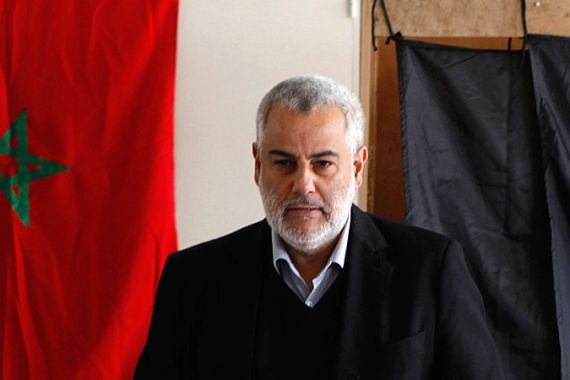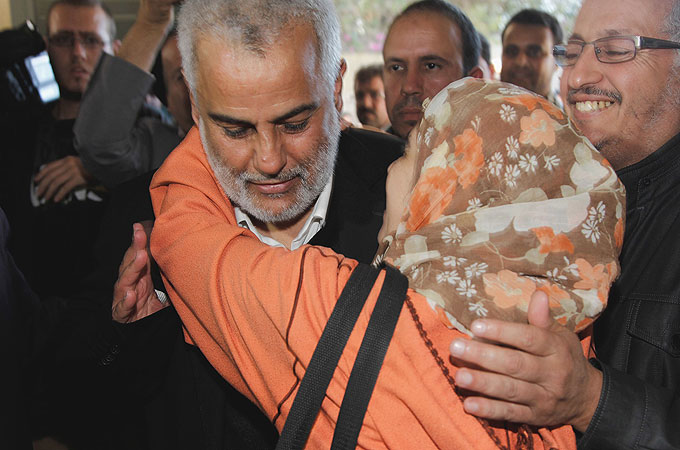Morocco’s PJD vows economic ‘reform’
Final results give Party of Justice and Development resounding win and chance to lead new coalition government.

 |
|
Abdelillah Benkirane, secretary-general of the PJD, said his party is “open” forming an alliance [Reuters] |
The moderate Party of Justice and Development (PJD) has won a resounding victory in Morrocco’s parliamentary elections, according to the government.
Final results released on Sunday showed the PJD had won 107 seats out of the 395 up for grabs in the nationwide vote.
Prime Minister Abbas el Fassi’s Istiqlal, or Independence, party came in second place with 60 seats. Istiqlal has headed a five-party coalition government since 2007.
“The victory of the PJD is an historic step towards democracy, this is a point of no return,” Abdelilah Benkirane, PJD secretary-general, said at packed news conference on Sunday night. “I promise a strong government that will give hope to Moroccans.”
Under new rules introduced earlier this year as part of a package of constitutional reforms backed by King Mohammed VI, the prime minister will be drawn from the biggest party in parliament, giving the PJD its first chance to head a coalition government.
Benkirane is considered to be the front-runner for the prime ministership, which is expected to be announced next week.
The PJD’s biggest rival is a coalition of eight pro-government parties led by Salaheddine Mezouar, the financce minister, which has amassed more than 111 seats. Under the new constitution, the party with the most seats gets the first attempt at forming a new government.
Potential partners
The PJD must now find coalition partners, with their natural allies being the “Democratic Bloc,” including Istiqlal, along the left-of-centre Union of Socialist Progressive Forces and the former Communist Party, both of which are older parties that have been eclipsed by Mezouar’s so-called Group of Eight.
Benkirane acknowledged his party would have to tailor its programme to appease prospective coalition partners. The PJD was “open to everyone” when it comes to forming alliances, he said.
“The nub of our programme and of those who will govern with us will have a double axis, democracy and good governance,” Benkirane told the France 24 television channel.
PJD plans to push for a tax reform to “spare the state additional borrowings”, said Lahcen Daoudi, PJD’s deputy leader.
“We want value-added-tax on luxury products, we want to reform the income tax system and introduce taxes on owners of unoccupied property. It should help us boost consumption and create more jobs.”
A focus on employment and the economy in a nation where youth unemployment is at 31 per cent and nearly one quarter of the 33 million population live in severe poverty, is considered one of leading factors in the PJD’s strong showing. As part of its economic plan, the PJD had also promised to raise minimum wages and reform education in the nation.
The PJD, originally known as the Mouvement Populaire Démocratique et Constitutionnel (MPDC), was founded in 1967 by Dr Abdelkrim Al Khatib, a physician of current King Mohammed’s father, has maintained ties to the monarchy.